Ever had one of those days where everything just feels… off? Like you’re stuck in your own head and nothing can shake the blues? Now imagine a pair of warm eyes, a nudge on your arm, and a heartbeat that syncs with yours — that’s the magic of emotional dogs. These pups don’t just wag tails; they heal hearts.
They’re not just pets. They’re the silent support during anxiety attacks, the calm in your chaos, and the loyal listener when you just need to vent. Sounds like therapy, right? But fluffier. Some people believe that emotional support dogs require specific training, but this is not the case.
What makes these dogs so special? It’s not about tricks or obedience medals. It’s about the way they sense your mood and show up — no questions asked, no judgment given. They’re wired to care.
If you’re looking for a companion that’s all about comfort, connection, and unconditional love… you’re in the right place. Let’s dive into the best emotional dogs out there.
Emotional Dog Breeds
1. Labrador Retriever
Let’s be real — when you think of a dog that just gets you, a Labrador Retriever is probably the first face that pops up. These dogs have hearts as big as their goofy smiles. Labs don’t just offer love; they radiate emotional support energy. They’re intuitive, deeply in tune with your mood, and have this amazing ability to make even the worst days feel lighter.
What sets Labs apart is their insane emotional intelligence. Seriously, it’s like they majored in human feelings. They can tell when you’re down before you even say a word. Whether you’re stressed, anxious, or just having one of those “meh” kind of days, a Lab won’t leave your side. Their presence is grounding, warm, calm, and totally reassuring.
Labs are also ridiculously patient, says PetMD. Unlike high-strung dogs who get overwhelmed, these gentle giants stay cool in chaotic situations. They’re not going to freak out when you’re freaking out. Instead, they stay calm and help you calm down. That’s a huge win for folks struggling with anxiety or PTSD.
And let’s talk about that classic Lab loyalty. These dogs don’t just love you — they worship you. They follow you from room to room, not in an annoying way, but like, “Hey, just checking if you’re okay.” That constant companionship builds a powerful emotional safety net. Feeling lonely? Not with a Lab around.
Worried about your dog being too sensitive around new people or environments? Labs actually shine in social settings. They’re friendly, adaptable, and thrive around both strangers and kids. That makes them ideal for emotional support roles in public or family environments where emotional needs are shared.
Fun Fact
Did you know Labrador Retrievers were originally bred to help fishermen retrieve nets and fish from icy waters? No wonder they’re naturals at “rescuing” people, emotionally — supporting humans is basically in their blood!
2. Poodle

Think emotional support dogs can’t be elegant and empathetic? Let the Poodle prove you wrong. These curly-coated charmers aren’t just pretty faces — they’re among the most emotionally responsive and intelligent dog breeds out there. You won’t just feel supported; you’ll feel understood.
Poodles have this uncanny ability to read human emotions like a book. Feeling down? They’ll quietly rest their head on your knee. Anxious and fidgety? They’ll gently lean into you or bring a toy to shift your focus. They’re masters at offering just the right kind of emotional connection — not too clingy, never distant.
Ever feel like the world’s spinning too fast? Poodles help slow it down. They thrive in routines and actually create calm through structure, says VCA. Their daily rituals — from quiet walks to snuggling at the same time each evening — become emotional anchors. These small things matter a lot when you’re overwhelmed or mentally drained.
And here’s a twist — they’re available in three sizes: Standard, Miniature, and Toy. Why does that matter? Because you can find one that fits your lifestyle and your emotional needs. Living in a small apartment or traveling often? A Toy Poodle’s right for you. Need a stronger physical presence? Standard Poodle is your match.
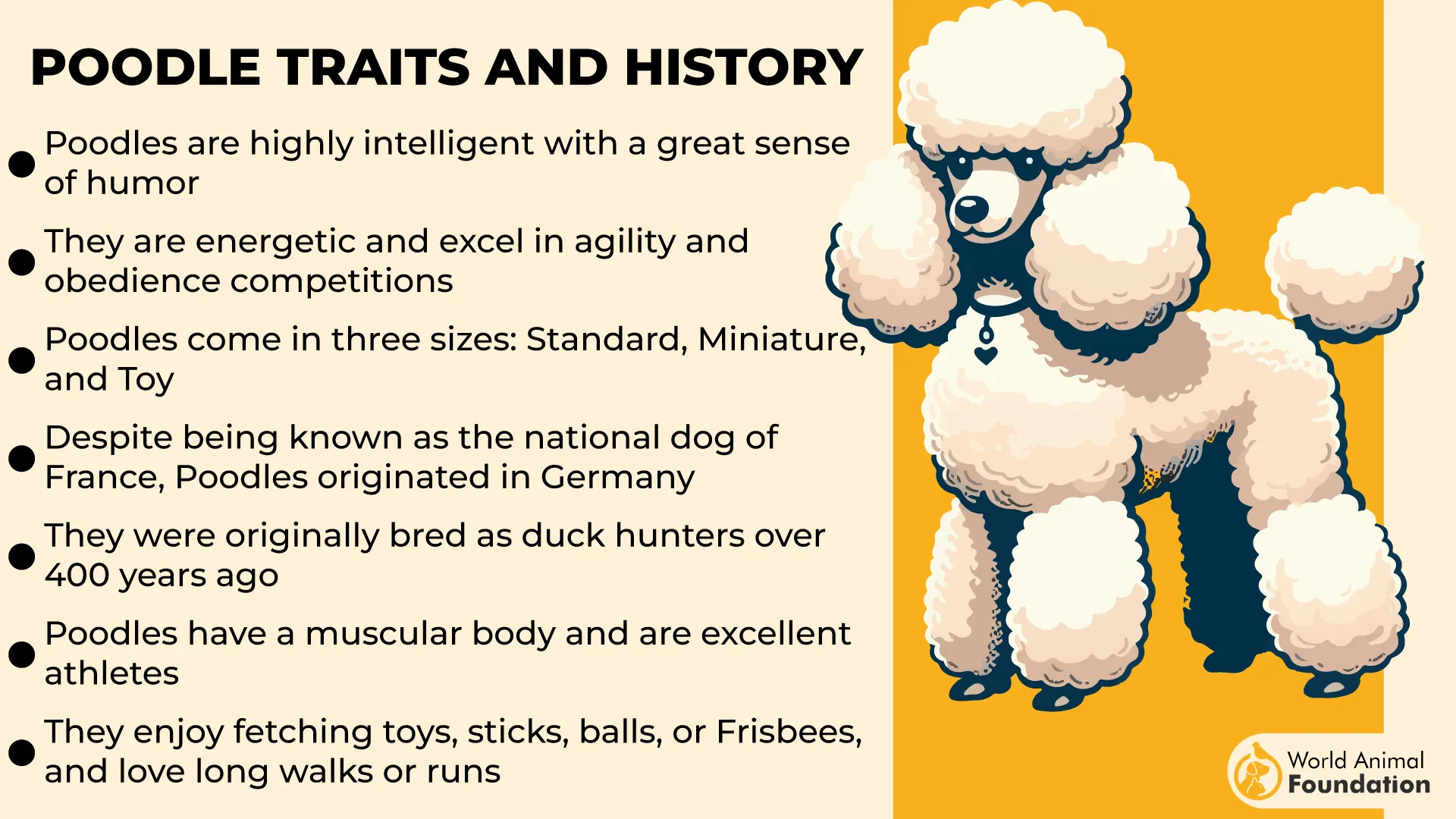
And let’s not forget the brainpower. Poodles rank among the smartest dogs in the world, which means they can be trained for specific emotional support tasks. From waking you up during night terrors to gently redirecting obsessive behaviors, they’re more than capable of going beyond cuddles when it counts.
3. Cavalier King Charles Spaniel
If ever there was a dog built purely for cuddles and connection, it’s the Cavalier King Charles Spaniel. These sweet little companions have a sixth sense for emotions — seriously, they can read a room better than most humans. One look from those soulful eyes and it’s like they’re saying, “I got you.”
Emotional availability sets them apart. They don’t just tolerate human moods — they absorb them. These dogs are often described as being “in tune” with their person, mirroring your emotional state with incredible accuracy. If you’re crying, expect a soft nuzzle. If you’re anxious, they’ll curl up so close it’s like they’re part of your heartbeat.
They’re also natural lap dogs, but not in a needy way. AKC states that Cavaliers have this gentle presence — they stay close, provide warmth, and offer a subtle, steady comfort that helps with loneliness, grief, or generalized anxiety. They’re like the living version of your favorite weighted blanket.
Worried about unpredictable behavior? You won’t find that here. Cavaliers are consistent and reliable. Their calm and predictable nature makes them especially helpful for people with autism, PTSD, or chronic anxiety. They don’t bark much, don’t spook easily, and generally keep the emotional atmosphere super chill.
Here’s something rare — they’re as happy indoors as they are outside. Whether you’re a homebody who needs quiet companionship or someone who needs a dog to join them on therapeutic walks, this breed adapts. They don’t need excessive activity to be content — your emotional presence is enough. But if they are not given enough exercise, they become destructive.
4. Golden Retriever
You know that friend who always shows up with a smile, a snack, and zero judgment? That’s the Golden Retriever in dog form. They’re not just lovable — they’re steady, emotionally attuned, and incredibly generous with their affection. If your mood dips, a Golden’s right there, tail wagging and heart wide open.
One of the important personality traits about Goldens? They don’t panic when you do. These dogs are emotionally stable, meaning, when you’re anxious or overwhelmed, they won’t mirror your stress. Instead, they act as a buffer, grounding you with their calm and high energy and unshakable loyalty, says Purina.
Let’s not ignore their empathy levels — these dogs can detect emotional changes faster than most therapists. Whether it’s a panic attack coming on or just a rough day at work, your Golden will shift into comfort mode. They often use gentle pressure (leaning against you) to reduce anxiety, which can be grounding during tough moments.
These perfect companions are also remarkably patient with people who have emotional or cognitive disabilities. Goldens won’t get frustrated if your behavior is unpredictable. Instead, they adapt. That’s why they’re often chosen for work with children on the autism spectrum, veterans with PTSD, or anyone navigating long-term emotional recovery.
Another major win? They’re fantastic with eye contact and body language. Goldens are naturally expressive — they smile, tilt their heads, and respond to your gestures. It creates this non-verbal conversation that can feel incredibly reassuring, especially when verbal communication is tough.
5. Bichon Frise
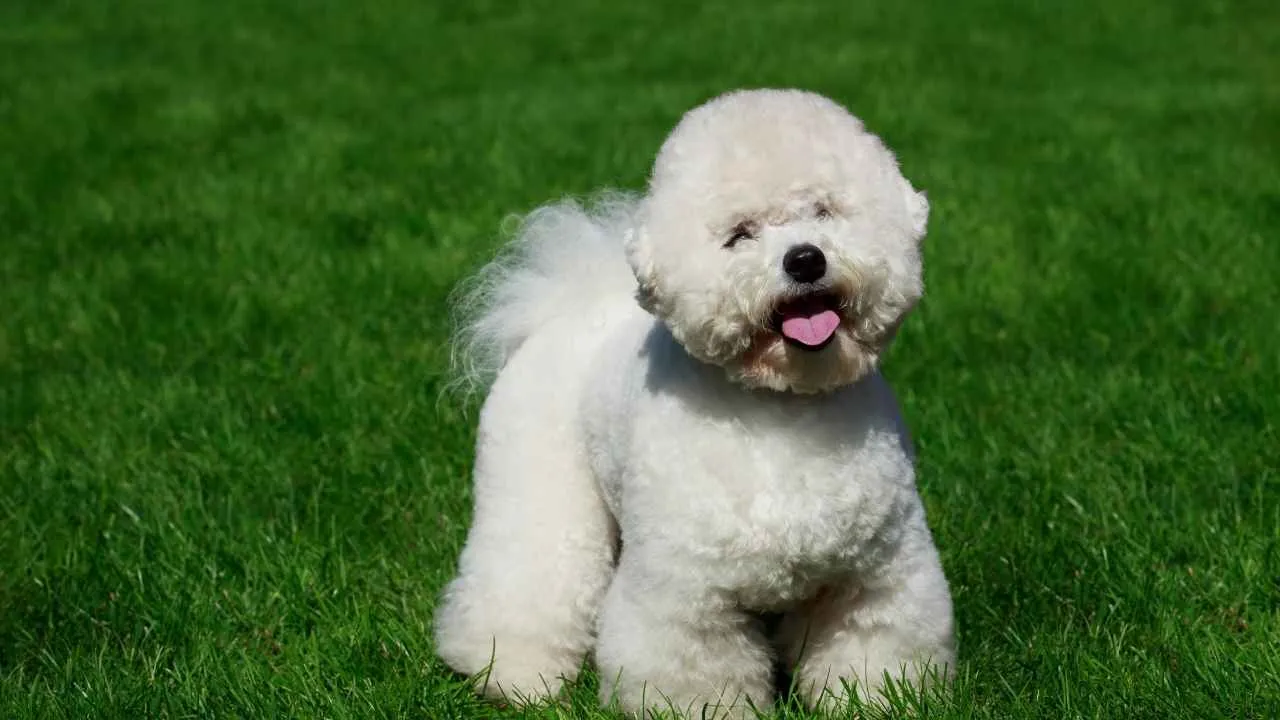
Ever wish you could bottle joy and keep it by your side? That’s basically what life with a Bichon Frise feels like. These fluffy companions don’t just lift your spirits — they float right into your heart. Britannica says that cheerful, affectionate, and unbelievably intuitive, Bichons are emotional pick-me-ups wrapped in a cotton ball.
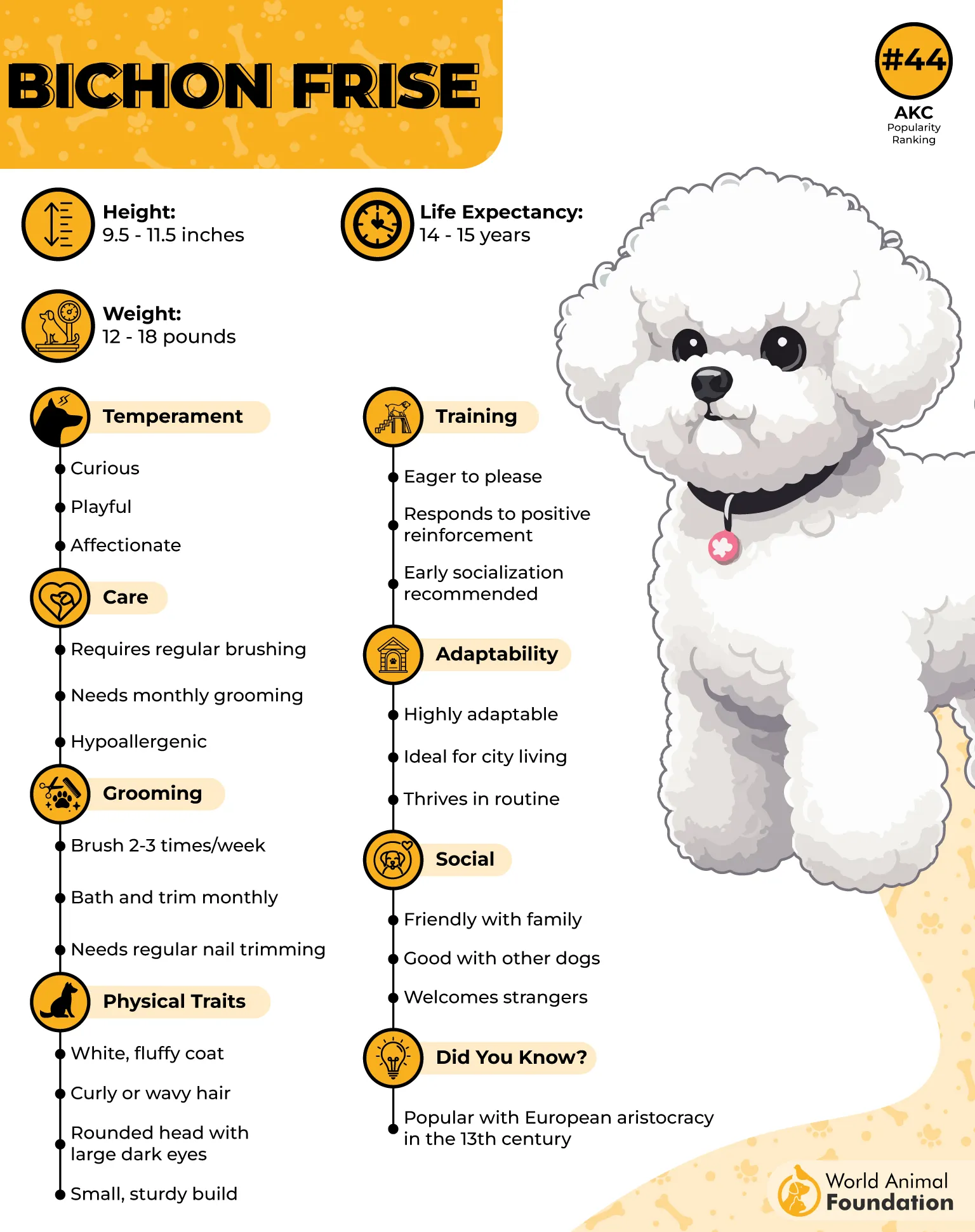
Their compact size isn’t just convenient — it’s comforting as they have an innate ability to provide support. You can carry them, hold them, or let them rest on your chest during an anxiety flare-up. That portability makes them perfect for people who want an ESA that can travel easily and stay physically close during moments of distress.
Here’s the kicker: Bichons are emotionally resilient. Some small dogs can get snappy or nervous, but Bichons stay gentle and composed, even when environments get chaotic. This makes them ideal for people dealing with sensory overload or who live in bustling households where calm companionship is key.
These dogs with a gentle nature are also ridiculously sociable — like, walk-into-a-room-and-win-everyone-over sociable. For people battling isolation or depression, this breed can act as your social bridge. You’ll be amazed how often a Bichon draws people in, helping you feel more connected without forcing interaction.
Routine matters when your mental health is shaky, and Bichons thrive in predictable schedules. Morning snuggles, daily walks, evening wind-downs — they’ll keep pace with you, giving your day a soft structure and sense of purpose without adding pressure. It’s like emotional scaffolding.
6. Boxer
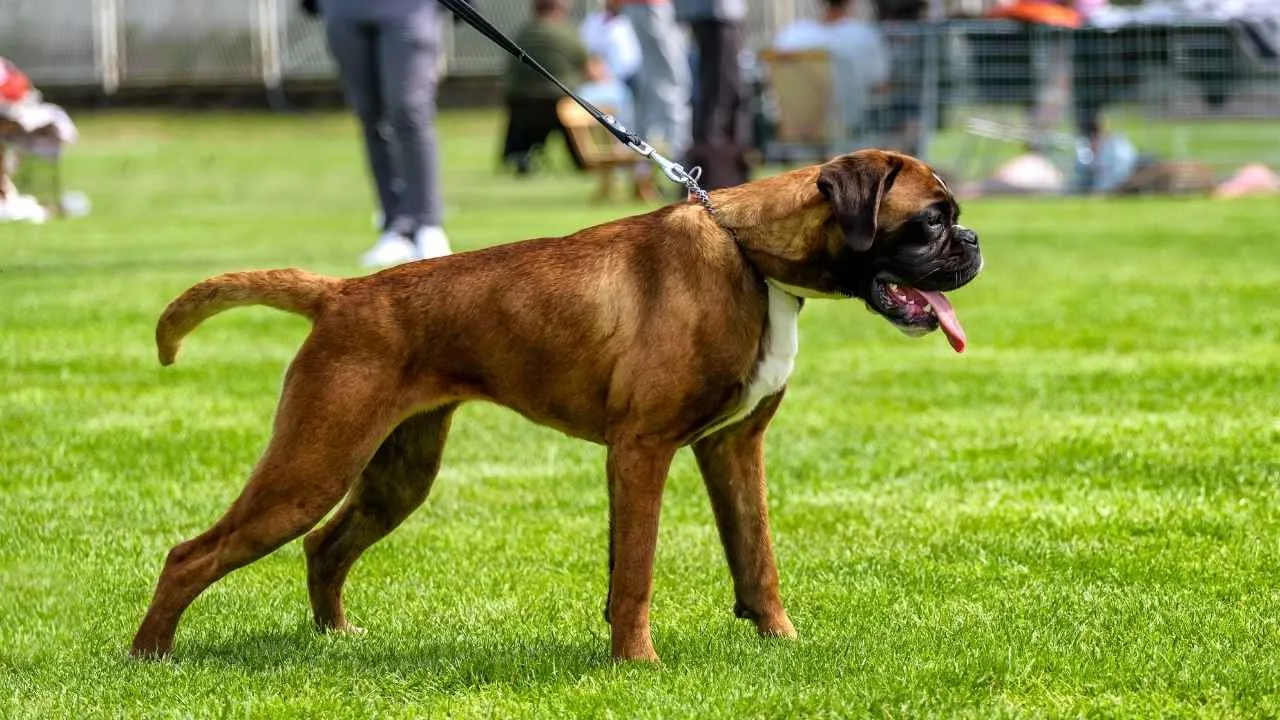
If emotional support had muscles and an endless sense of humor, it would look exactly like a Boxer. These sturdy, animated, muscular dogs are more than just athletic companions — they’re deeply sensitive, surprisingly intuitive, and wired to be emotionally bonded with their humans. Basically, they’re emotional warriors disguised as clowns.
Boxers might look like tough and strong guys, but behind that square jaw is a heart that beats hard for their people. They’re incredibly attuned to mood changes — you won’t need to say a word for your Boxer to know something’s off. One glance at your posture, and they’re already nudging in to comfort you.
Boxers are very famous for their emotional loyalty, says Hill’s Pet. Once they connect with you, it’s full-on devotion. They don’t half-love. They’ll follow you from room to room, rest their head on your lap when you’re down, and even act a little protective when you’re stressed, like they sense you need a bubble.
They also bring something special to the table: comic relief. When life feels too heavy, Boxers lighten the mood — whether it’s with goofy expressions, dramatic flops onto the couch, or full-body wiggles when you get home. Their silliness is infectious, often breaking emotional spirals without even trying.
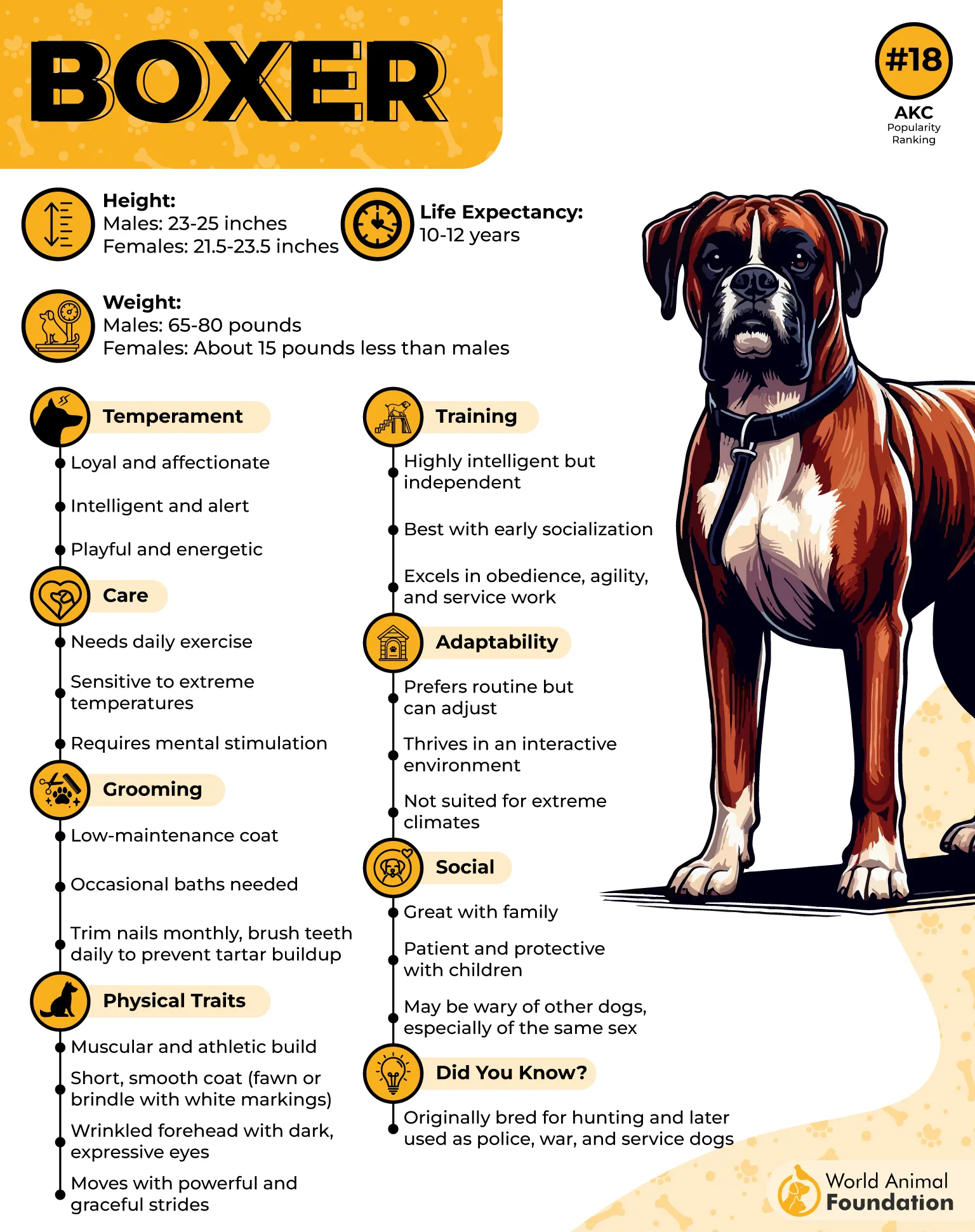
And for people who need both emotional and physical grounding, Boxers are ideal. They’re strong, present, and love physical touch — think head-on-your-thigh cuddles, leaning against you during anxiety attacks, or lying on your feet during overwhelming moments. They offer deep pressure comfort without needing formal training.
7. German Shepherd
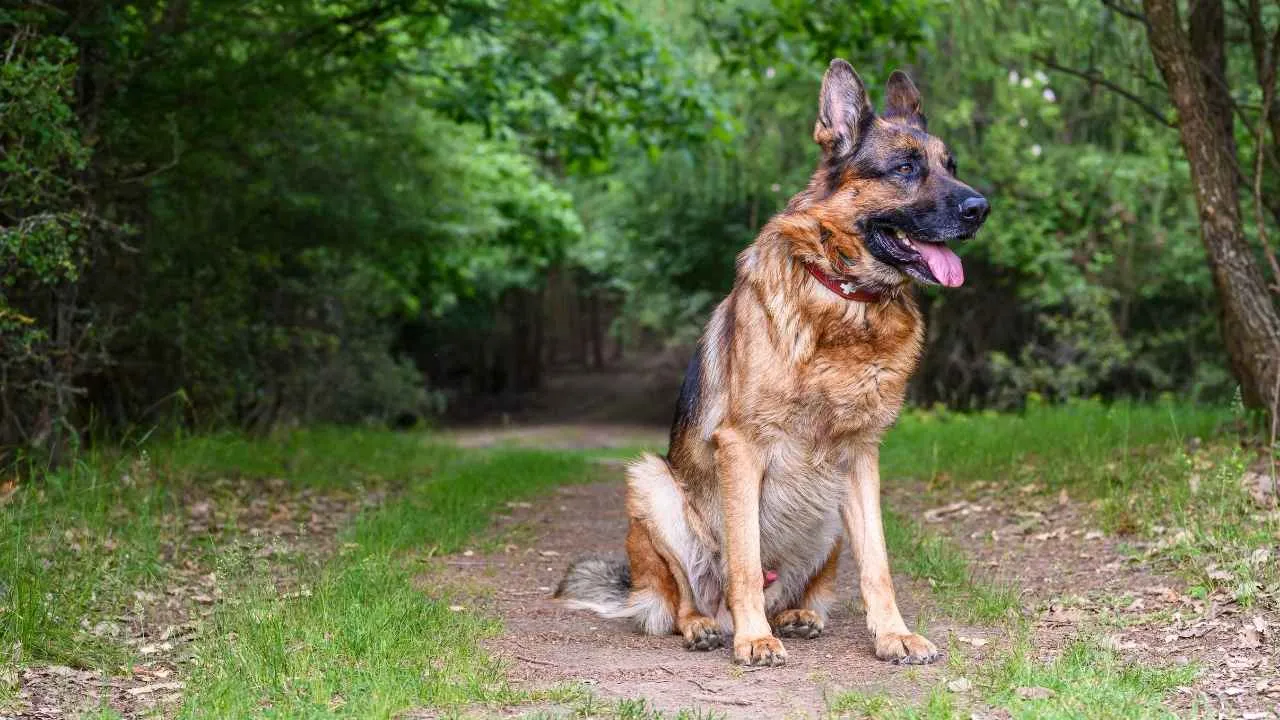
German Shepherds may be known for police work and intelligence, but beneath all that grit is a deeply loyal, emotionally intuitive companion. These dogs don’t just follow commands — they follow your heart. And when it comes to emotional support, that makes all the difference.
This breed has an uncanny ability to sense shifts in energy. You don’t have to sob or shout — a slight slump in your shoulders is all it takes for a German Shepherd to kick into support mode. Their awareness goes beyond basic companionship — it’s protective, grounded, and calming all at once.
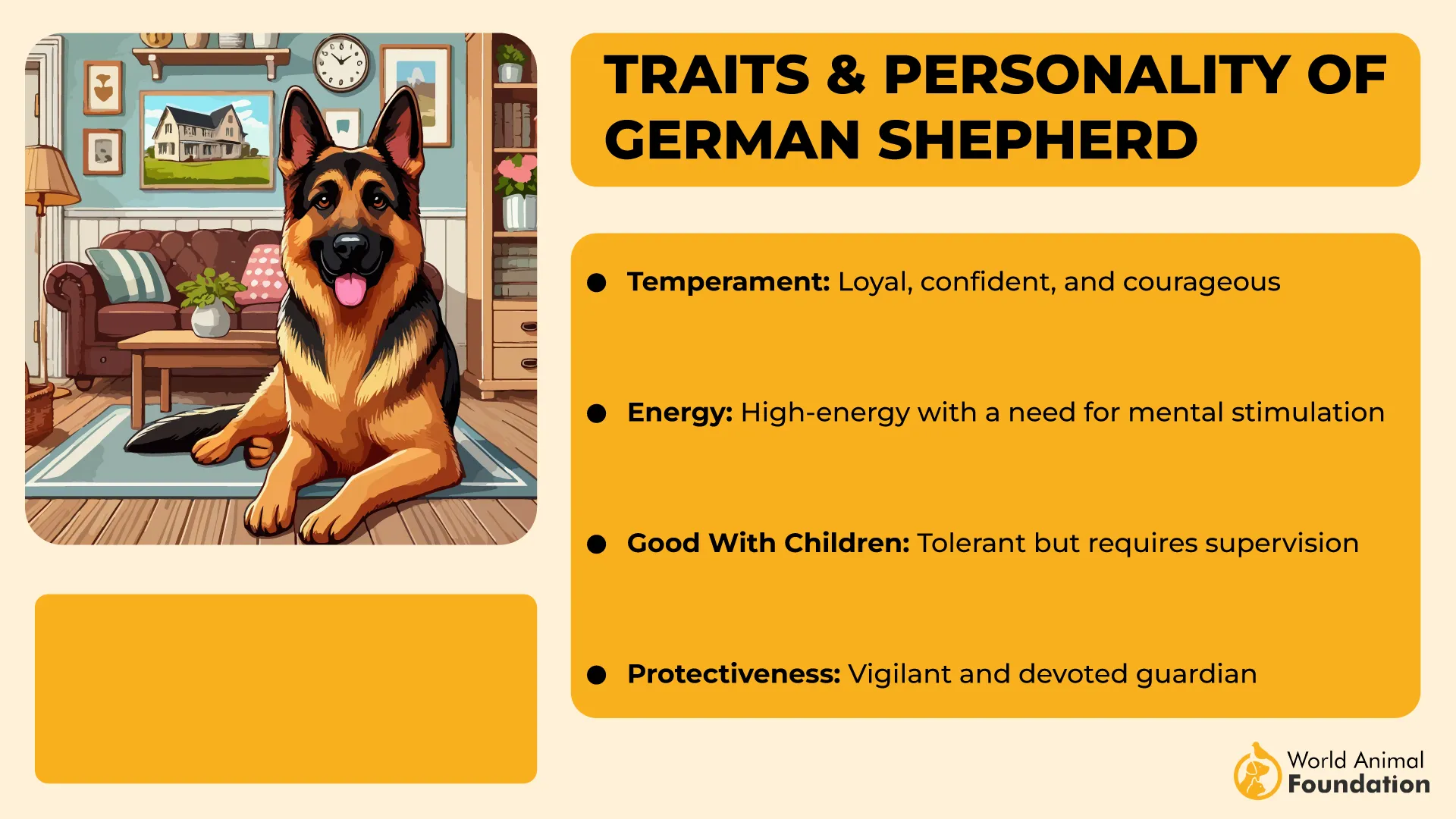
Unlike more passive emotional support breeds, German Shepherds actively take responsibility for your emotional well-being. It’s not just comfort — it’s commitment. They position themselves close, maintain watchful eye contact, and often intercept emotional spirals before they get too deep. It’s like they’re silently saying, “I’ve got this. You’re safe.”

Need structure when your mental health feels chaotic? German Shepherds thrive on routine and will happily help you stick to one. They need physical and mental stimulation. Morning walks, feeding times, quiet bonding moments — they bring rhythm and consistency that’s incredibly helpful if you’re managing anxiety, ADHD, or depression.
And here’s the part that surprises most people — German Shepherds are incredibly friendly and affectionate, says Omlet. Not just in a “lie beside you” way, but in a “lean against you, look you in the eye, rest their paw on your arm” kind of way. It’s physical comfort, emotional presence, and trust-building all at once.
8. Irish Wolfhound
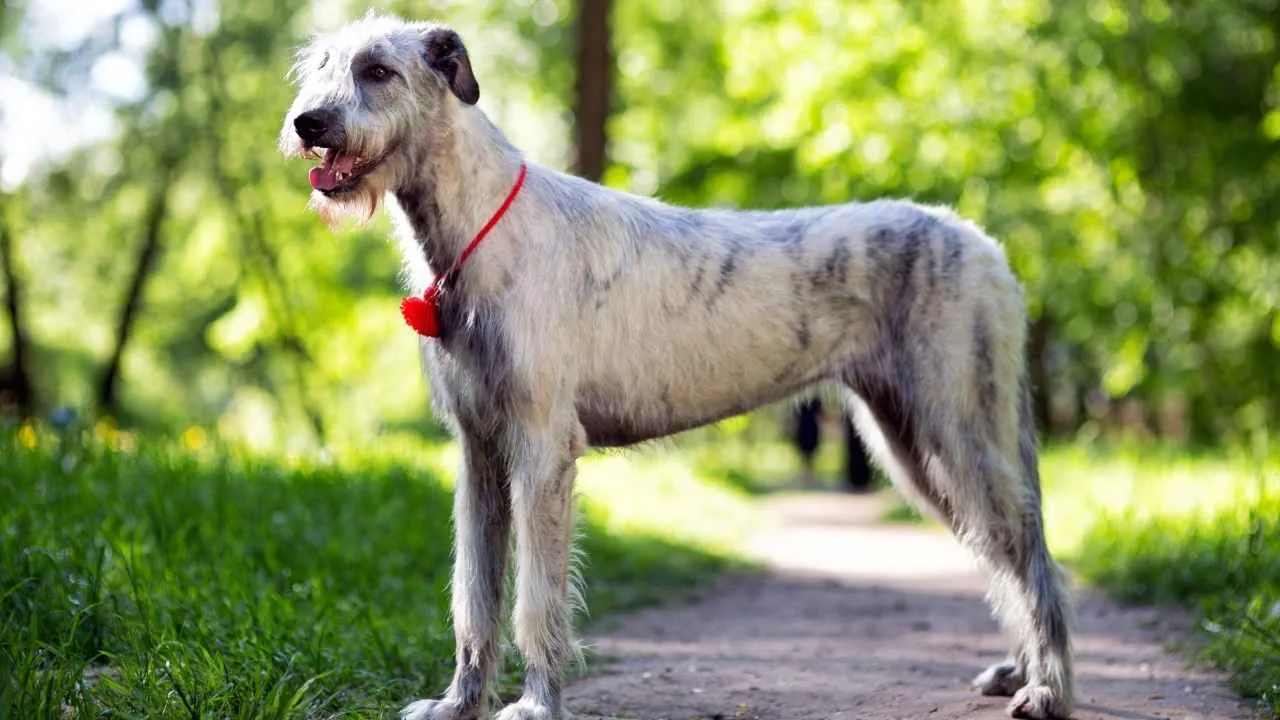
When you picture emotional support, a giant, shaggy dog might not be your first thought, but the Irish Wolfhound will surprise you in the best way. They may look like towering warriors from a fantasy novel, but emotionally? They’re pure softness, patience, and quiet connection.
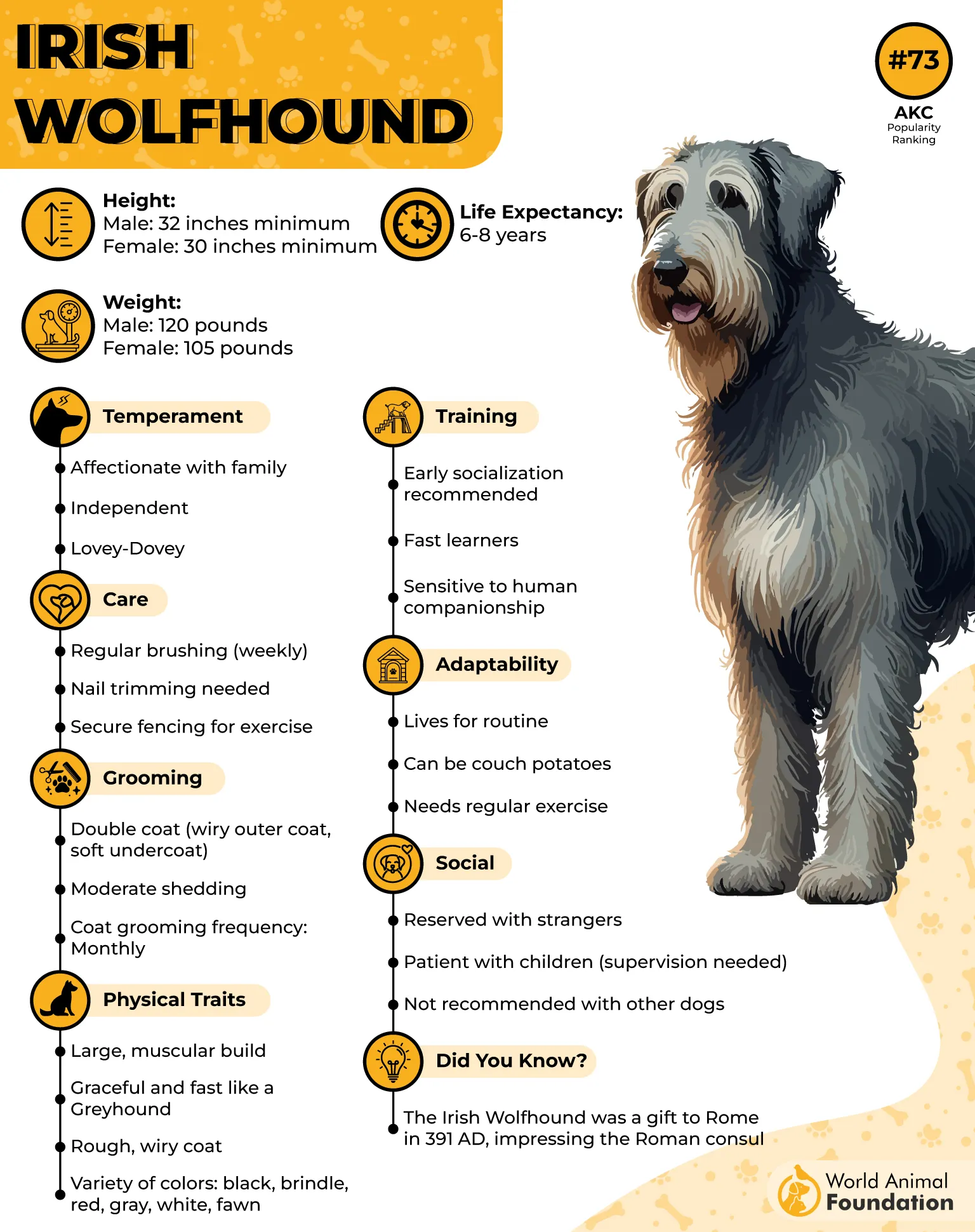
The true magic of Irish Wolfhounds lies in their calm, composed, almost meditative presence, says PetMD. They’re not overly excitable or clingy — they’re steady, soothing, and surprisingly aware of your emotional needs. Think of them as the kind of friend who just sits with you when you’re struggling — no words, just comfort.
This breed brings emotional grounding in the most literal sense. When your thoughts are racing or your anxiety spikes, having a massive, relaxed companion resting near you creates an instant sense of security. Their sheer size and steady breath can calm the storm inside without them doing much at all.
They’re also incredibly observant. Wolfhounds pick up on routines, mood shifts, and energy changes with near-psychic precision. These great therapy dogs don’t rush to fix — they quietly adjust. If you’ve had a tough day, don’t be surprised if your Wolfhound follows you more closely, lies across your doorway, or simply sits facing you in stillness.
Despite their size, they’re known for being soft-mannered and emotionally available. They’ll rest their head in your lap, nudge your hand gently, or curl their long body beside you on the floor. They don’t demand attention — they offer connection on your terms, which is so valuable for people managing emotional fatigue.
And here’s something rare: they respect space. Some dogs hover too much or get anxious themselves, but Irish Wolfhounds hold emotional space without invading it. They’re fantastic for people who want company without pressure, affection without neediness. Ever needed someone to be there, but not in your face? That’s this dog.
9. Dachshund

Don’t be fooled by the short legs — the Dachshund might just be one of the most emotionally intuitive dogs you’ll ever meet. What they lack in size, they make up for in soul. These tiny tanks with long bodies are surprisingly in tune with your emotional state and thrive when they feel needed.
Dachshunds form incredibly strong bonds with their humans. They’re not just loyal — they’re attached at the heart. Once they choose you, they’re all in. They’ll follow you from room to room, snuggle into your blanket burrito, and tilt their head every time your tone changes. You’ll never feel alone again.
What makes them great emotional support dogs is their ability to mirror moods. If you’re having a low-energy, under-the-blankets day, they’ll curl up quietly with you. If you’re finally ready to take on the world again, they’ll spring into action, tail wagging like mad. It’s like they’re emotionally synced to your pace.
And despite their toy-like appearance, Dachshunds are surprisingly brave, says AKC. They’ll bark at the door, investigate strange noises, and make you feel protected — even if they’re barely a foot off the ground. That fearless attitude can be seriously uplifting when you’re feeling vulnerable or low on confidence.
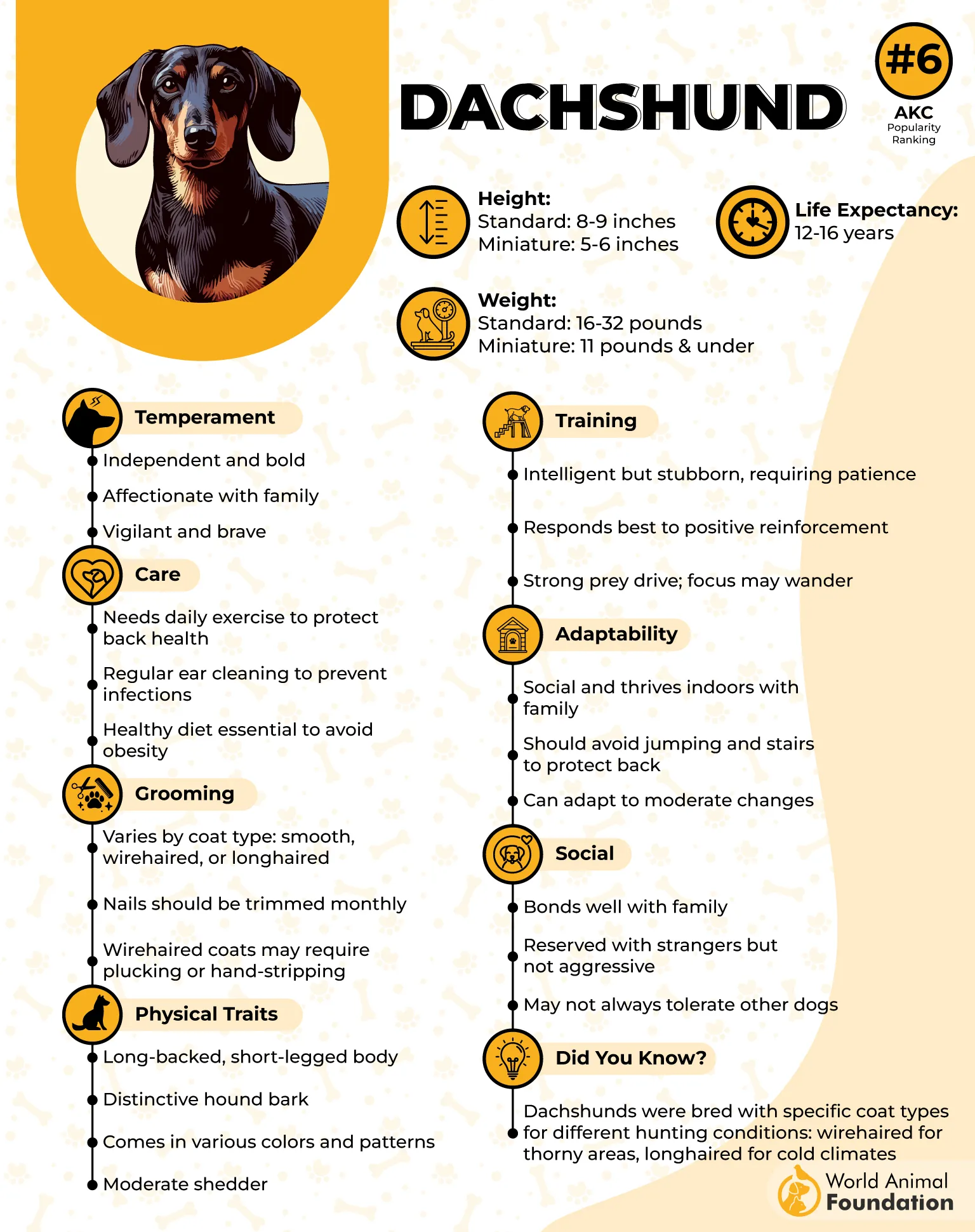
They also respond extremely well to routine, which can be a game-changer for people dealing with depression, anxiety, or ADHD. Dachshunds love regular meals, daily walks, and snuggle time. Having a pet who helps shape your day without judgment can gently keep you moving through even the hardest periods.
Another cool trait? They’re excellent listeners. You can talk to your Dachshund about anything, and they’ll look like they totally get it. Those expressive eyes and furrowed brows can make venting feel more like therapy. It’s comforting to speak out loud without fear of misunderstanding or interruption.
Conclusion
If you’re searching for the best dog to ease anxiety, lift your spirits, and offer real emotional support, certain dog breeds truly stand out. These breeds aren’t just cute companions — they’re highly intuitive, emotionally connected, and bring therapeutic benefits that go far beyond cuddles. With the right companion dog, pet ownership becomes a daily source of comfort, confidence, and connection. Whether you’re coping with mental health conditions, low self-esteem, or just need a more calming presence, these compassionate dogs can truly offer life-changing support.
Some of the great emotional support animals come from working dogs, herding dogs, and even small dog categories. Whether you’re considering a fluffy, high-maintenance coat pup like the Poodle or a loyal protector like the German Shepherd, each individual dog offers something unique. These breeds naturally form deep bonds, are often easily trainable, and love to stay mentally stimulated. Many also thrive in smaller spaces, making them perfect for apartment dwellers who still want unconditional love and companionship.
It’s not about just any dog — it’s about the specific dog that meets your emotional needs. For those with physical disabilities or more complex mental health challenges, a service dog might be more appropriate — something a licensed mental health professional can guide you on. But for many, emotional support dog breeds like Labrador Retrievers, English Bulldogs, Golden Retrievers, Shih Tzus, or even Cavalier King Charles Spaniels provide a loving, stabilizing presence every day. Their ability to offer support, deliver anxiety relief, and create a positive effect on mood is nothing short of powerful.


